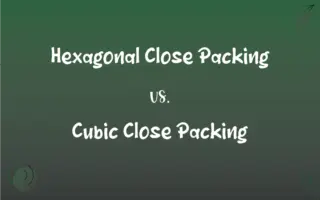Time vs. Tense: What's the Difference?
Edited by Aimie Carlson || By Janet White || Published on April 21, 2024
Time refers to the chronological moment of an action (past, present, future), while tense is the grammatical expression of time in a verb form.

Key Differences
Time in language refers to the actual period during which something happens (like past, present, or future), while tense is a grammatical concept that indicates the time of an action or event through the use of verb forms.
Time is a universal concept independent of language, marking when events occur. Conversely, tense is specific to language and is used to convey when something happens in relation to the present moment.
In understanding events, time is an objective measure, while tense is a linguistic tool that expresses time through verbs, allowing speakers to position events temporally.
Time is a continuous sequence that can be divided into past, present, and future, but tense is how these divisions are encoded grammatically in speech and writing.
Time is a concept that exists regardless of human perception, while tense is a human construct used in language to express time in relation to the speaker or writer.
ADVERTISEMENT
Comparison Chart
Definition
Chronological moment
Grammatical expression
Dependence
Independent concept
Language-dependent
Divisions
Past, Present, Future
Past, Present, Future tenses
Expression
Objective measurement
Through verbs
Perception
Universal and constant
Subjective and variable
ADVERTISEMENT
Time and Tense Definitions
Time
Time is the ongoing sequence of events taking place.
The time now is 4 PM.
Tense
Tense indicates the completeness or ongoing nature of an action in time.
They are studying for exams (present continuous tense).
Time
Time is a measurable period during which an action, process, or condition exists or continues.
The cooking time for pasta is about 10 minutes.
Tense
Tense is the aspect of a verb that shows the time of an action or event.
He had eaten before arriving (past perfect tense).
Time
Time is a point of time as measured in hours and minutes past midnight or noon.
We will meet at lunchtime.
Tense
Tense is used to express whether an action is habitual, ongoing, or completed.
He reads the newspaper daily (simple present tense).
Time
Time refers to a suitable or opportune moment for something.
It's time to start the meeting.
Tense
Tense is a set of verb forms in grammar to express time.
She walks to school (present tense).
Time
Time is an instance or occasion.
This is the first time I've tried sushi.
Tense
Tense differentiates between past, present, and future actions.
She will arrive tomorrow (future tense).
Time
A nonspatial continuum in which events occur in apparently irreversible succession from the past through the present to the future.
Tense
Tightly stretched; taut.
Time
An interval separating two points on this continuum; a duration
A long time since the last war.
Passed the time reading.
Tense
In a state of nervous tension or mental strain
Was very tense before the exam.
FAQs
Can time exist without tense?
Yes, time is a universal concept independent of language, while tense is a linguistic construct.
How does tense relate to time?
Tense is the grammatical expression of time, indicating when an action or event in relation to the present.
Are tense and time the same in all languages?
No, different languages have various ways of expressing time through tense.
Is tense always accurate for timing?
Not always; tense can sometimes be used flexibly for stylistic or narrative purposes.
How is future time expressed in English?
Future time is often expressed with the 'will' or 'going to' constructions.
Can a sentence have no tense?
Theoretically, but in practical usage, most sentences in English have a tense.
How many tenses are there in English?
English typically has three main tenses: past, present, and future, each with various aspects.
How does time influence tense usage?
The time at which an action occurs dictates the tense used to describe that action.
Can tense change the meaning of a sentence?
Yes, changing the tense can alter the time reference and thus the meaning of a sentence.
How do tenses affect storytelling?
Tenses set the time frame and can create mood, suspense, or foreshadowing in storytelling.
What's the difference between time and tense in a sentence?
Time is the actual moment something happens, while tense is how that time is expressed through the verb.
What is time in grammar?
In grammar, time refers to when an action or event occurs - past, present, or future.
Is tense important in all types of writing?
Yes, maintaining consistent tense is crucial for clarity in both formal and informal writing.
Are there languages without tense?
Yes, some languages use aspect rather than tense to express time.
Can tense usage vary culturally?
Yes, different cultures and languages may use tenses differently based on linguistic norms.
Can time be subjective in narrative?
Yes, how time is perceived or expressed can be subjective, especially in narrative forms.
Do all verbs have the same tense forms?
No, some verbs (like irregular verbs) have unique tense forms.
Why is it important to use the correct tense?
Using the correct tense ensures clear communication and helps avoid misunderstandings.
How is past time usually expressed?
Past time is typically expressed with simple past tense or past perfect tense.
Is tense linked to verb conjugation?
Yes, tense is directly related to how verbs are conjugated.
About Author
Written by
Janet WhiteJanet White has been an esteemed writer and blogger for Difference Wiki. Holding a Master's degree in Science and Medical Journalism from the prestigious Boston University, she has consistently demonstrated her expertise and passion for her field. When she's not immersed in her work, Janet relishes her time exercising, delving into a good book, and cherishing moments with friends and family.
Edited by
Aimie CarlsonAimie Carlson, holding a master's degree in English literature, is a fervent English language enthusiast. She lends her writing talents to Difference Wiki, a prominent website that specializes in comparisons, offering readers insightful analyses that both captivate and inform.






































































